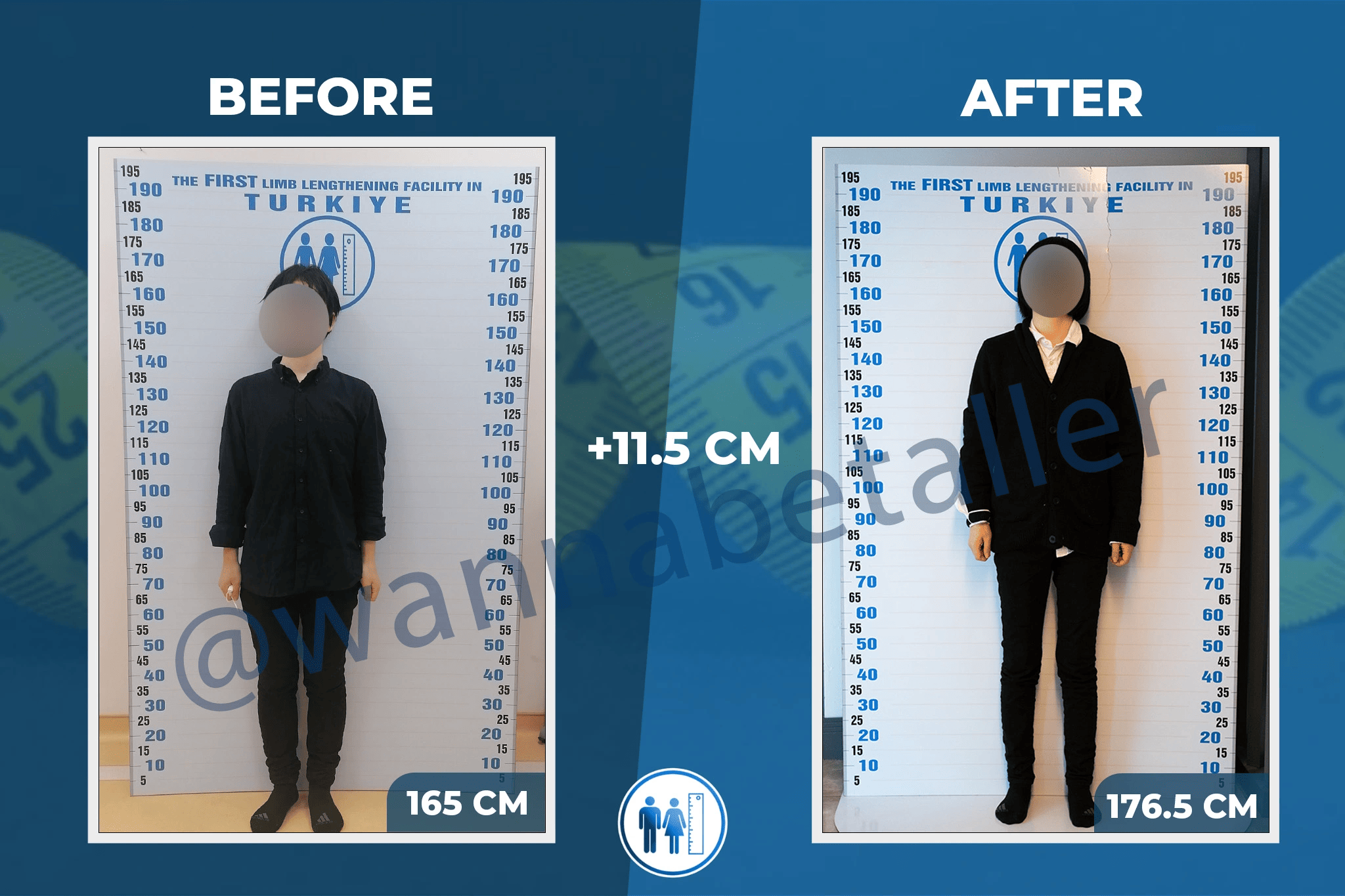 Across the globe, many people desire to be taller. Height is not merely a number; it influences how we see ourselves and how others perceive us. Being taller is often viewed as a favorable attribute that can assist in job opportunities, forming friendships, and feeling better about oneself. Consequently, individuals frequently explore various methods to gain a few extra centimeters in height.
Across the globe, many people desire to be taller. Height is not merely a number; it influences how we see ourselves and how others perceive us. Being taller is often viewed as a favorable attribute that can assist in job opportunities, forming friendships, and feeling better about oneself. Consequently, individuals frequently explore various methods to gain a few extra centimeters in height.
However, whether through nutrition or exercises, these methods do not contribute to height increase in individuals who have completed puberty. At this point, one of the common questions that arise is, “Can height be increased after 25?” In this article, we will share scientific and medical approaches to height growth after puberty.
Height Increase after Puberty
First and foremost, it’s essential to recognize that the process of height growth varies among individuals, directly influenced by genetic factors, dietary habits, overall health, and lifestyle. Consequently, even within the same country or city, the average height of individuals can significantly differ.
Building on this fundamental understanding, another critical point to be aware of is that biologically, height growth after puberty is not possible. This is due to the closure of growth plates in our body, which are responsible for height increase, at the end of puberty, ceasing their active function. Therefore, individuals who have completed puberty cannot naturally increase their height through nutrition or height-increasing exercises. These methods are more applicable to individuals who are still in their developmental phase and have not yet completed puberty.
Can Eating Healthy Make You Taller?
Yes, particularly during childhood, nutrition plays a crucial role in supporting height growth. Adequate nutrition provides essential nutrients necessary for growth and development, including proteins, vitamins, and minerals vital for bone health and overall growth. While genetics primarily determine height, proper nutrition can help individuals reach their maximum potential height. This is especially important for children and adolescents in their growth phases, as nutritional deficiencies during these critical periods can hinder growth and prevent reaching their full genetic height potential. However, once growth plates close after puberty, nutrition will no longer affect height but remains important for maintaining bone health and overall well-being.
Are Height Growth Pills and Hormonal Injections Effective?
It’s really important to be careful when thinking about taking pills or getting shots to grow taller. For adults whose growth plates have closed, there’s no real proof that pills for growing taller actually work. This means that trying to grow taller without surgery doesn’t really work, and these products aren’t even supposed to be used by kids. So, it’s best to stay away from these pills.
Regarding growth hormone injections, these are prescribed specifically by medical professionals for children diagnosed with certain growth deficiencies. This treatment is not appropriate for adults and is not recommended for children without clear medical guidance. Utilizing these or similar methods to increase height poses risks to personal health. Undertaking any treatment without the approval of a doctor can lead to adverse side effects and health issues.
How Does Height Increase after Puberty?
As mentioned earlier, it is not possible to naturally increase height after puberty. Changing dietary habits or performing exercises aimed at increasing height are not effective once puberty has ended. These methods are typically recommended for individuals who have not yet completed their pubertal growth. The question of “How can height be increased after puberty?” is one that many people who wish to grow taller ask.
The only possible way to increase height after the end of puberty is through surgical operations aimed at extending the limbs. This surgical procedure targets height increase and the full recovery process usually takes between 9 to 12 months. This period also includes intensive physical therapy sessions.
Limb Lengthening Surgery


